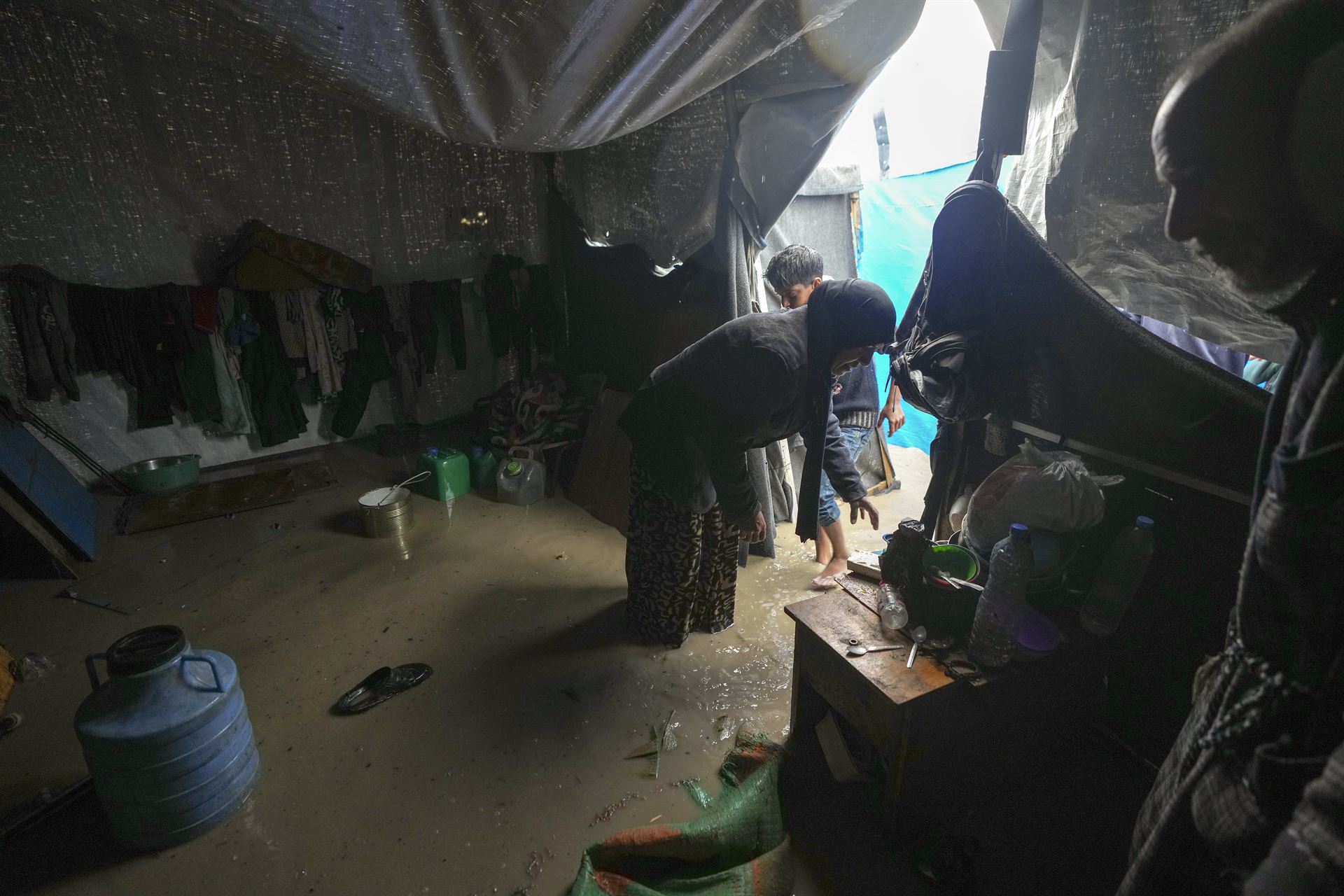
In a year marked by new global conflicts and rising international tensions, the United States has drawn much attention from the United Nations Security Council for its repeated use of veto power on Israel-related draft resolutions.
Since the outbreak of the latest conflict between Israel and Palestine on Oct 7, 2023, 14 resolutions have been proposed at the Security Council but only four have been passed. During these votes, the US exercised its veto power six times, including five instances where it was the sole opposing country.
That brought the total number of US vetoes on Israel-related resolutions to 49 — more than half of all its vetoes since the UN's founding.
ALSO READ: Israel warns of escalation in Gaza if hostage deal not reached
The US, along with China, France, Russia and the United Kingdom, holds the privilege of unilateral veto power as a permanent Security Council member.
On Oct 18, 2023, the US vetoed a Brazil-proposed resolution calling for humanitarian pauses in the Gaza crisis. A week later, both the US and the UK vetoed a Russia-backed resolution that ultimately failed because of insufficient support. On Dec 8, 2023, the US vetoed a resolution calling for an immediate cease-fire in Gaza, despite overwhelming support within the council.
READ MORE: Report: Israeli strikes kill at least 17 Palestinians in Gaza
The trend persisted into 2024, with vetoes on Feb 20 and April 18, the latter rejecting a resolution to admit Palestine as a UN member state. Most recently, on Dec 8, the US vetoed a resolution demanding an immediate humanitarian cease-fire in Gaza.
"We express great disappointment and regret that the draft has been vetoed by the US," said Zhang Jun, at that time China's permanent representative to the UN.
Mohamed Abushahab, then-deputy permanent representative of the United Arab Emirates to the UN, also expressed his deep disappointment with the outcome.

'Instrument of paralysis'
UN Secretary-General Antonio Guterres has described the veto as an instrument that has paralyzed the council from taking action on Gaza.
Worsening geopolitical divides have "transformed the veto power into an effective instrument of paralysis of the action of the Security Council", Guterres said in February.
"I am totally convinced that we need a humanitarian cease-fire and we need the unconditional and immediate release of hostages and that we should have a Security Council able to achieve these objectives," he said.
China and Russia have each used their veto power twice since Oct 7, 2023. On Oct 25, 2023, the two countries vetoed a US-proposed draft resolution regarding the Palestine-Israel conflict.
READ MORE: Displaced Gaza newborn freezes to death as rain floods tents
"The draft departs from the spirit of previous UN resolutions and embeds the dangerous logic of clash of civilizations and the justification of war and use of force," Zhang said in an explanation of the vote.
On March 22, China and Russia vetoed a US-proposed draft resolution on a Gaza cease-fire, with Algeria also voting against it.
Algeria's permanent representative to the UN, Amar Bendjama, told the Security Council that the US draft resolution would have allowed "continuing bloodshed".
READ MORE: WHO chief calls for end to hospital attacks in Gaza after strike
Since the founding of the UN, the five permanent members of the Security Council have collectively exercised their veto power 323 times. As of November, Russia and its predecessor, the Soviet Union, account for 159 vetoes, followed by the US with 93 (49 of which were to shield Israel), the UK with 32, China with 21 and France with 18.
When a resolution is vetoed in the Security Council, the General Assembly — the UN's highest deliberative body — automatically convenes to discuss the issue. Unlike Security Council resolutions, which are legally binding, General Assembly votes carry no binding authority but reflect the stance of the international community, as they represent the collective decision of all 193 UN member states.
Following the US veto of a Gaza cease-fire resolution on Dec 8, the General Assembly overwhelmingly approved resolutions calling for an immediate cease-fire in Gaza and supporting the UN agency for Palestinian refugees, which Israel has sought to ban. The US and its close ally Israel were in a minority voting against the resolutions.


